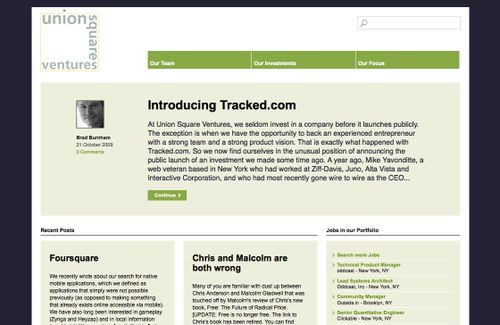Save and Invest
Yesterday morning I attended the annual meeting of the NYC Partnership. The NYC Partnership is the "chamber of commerce" for NYC. Because NYC is one of the biggest commerce centers in the world, the NYC Partnership is a pretty interesting group and has lots of big name companies and execs involved in it.
The annual meeting yesterday featured talks by Lloyd Blankfein, Larry Summers, Mike Bloomberg, and Rupert Murdoch. I tweeted a bit from the meeting and you can see those tweets here (Dec 4th, 8:30am to 9:30am).
My favorite talk was Larry Summers' in which he addressed the administration's economic plans, priorities, and strategies.
At one point, Larry said that the US needs to "save, invest, and export more and the developing world needs to spend, borrow, and import more" (or something like that). It's certainly true that we can't continue with the model where the US borrows and goes deeply in debt to purchase goods and services provided by the developing world which then saves the money they earn and lends it to the US. That's how we've gotten into the mess we are in.
But I'd like to focus on "saving and investing". It has not been fashionable in this country to be a saver and an investor. It's been more fashionable to be a borrower and spender. Everyone wants to lease a fancy car or take out a big mortgage to buy a big home.
I'd like to see Obama make a big deal about the value of saving and investing. He's got great oratorical skills but he often talks in grand sweeping generalisms, like the "need to change." Well I think its time to get more specific about what needs to change. And if Obama were to start talking about the value of saving and investing every time he makes a speech, I think he could make saving and investing fashionable.
Saving is hard, particularly when you can barely make ends meet. But a "forced savings" plan can work for most people. Many companies do an automatic deduction for a 401k plan. It would be great if you could also do an automatic deduction and send the money to a mutual fund or money market fund. If everyone tried to save 5 to 10 percent of their take home pay, it would make a huge difference.
Investing is also important. Not gambling, not speculating. That is best left to the pros. Investing means taking some risk but not a lot of risk. It means putting money to work in the economy, and not just our economy, but the global economy. Mutual funds are a good way to do this. So are index funds. There are a lot of good places to get sound advice on how to invest wisely and patiently. We need to do more of that in this country.
Saving and investing has been part of the american culture in the past. It is still very much part of the culture among some parts of our citizenship. But too many of us have gone on a borrow and spending binge and it's time to get back to basics. And I'd like to see our President get out in front on this issue and lead the country back to a better way.
![Reblog this post [with Zemanta]](http://img.zemanta.com/reblog_b.png?x-id=8f9c3f73-3cbc-43e0-8835-3d9b5379d1fd)

![Reblog this post [with Zemanta]](http://img.zemanta.com/reblog_b.png?x-id=b7c67306-352c-45f9-a3c0-4a05fe5db704)
![Reblog this post [with Zemanta]](http://img.zemanta.com/reblog_b.png?x-id=46c9d2f2-3bc3-45f8-a974-6ad168e69d70)
